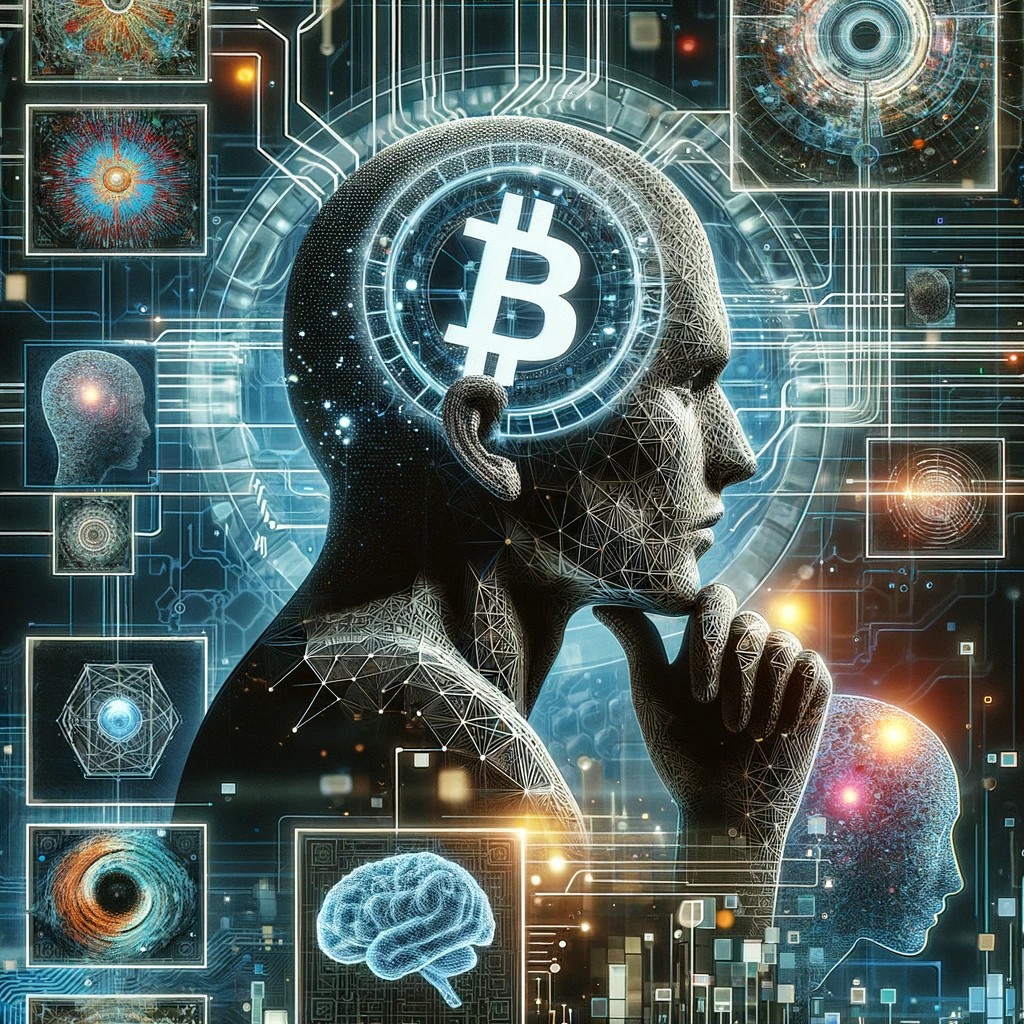Vitalik Buterin, the genius behind Ethereum, recently got into the complex interplay between cryptocurrency and Artificial Intelligence (AI), offering a perspective that demands attention. His insights are not just a superficial glance but a deep dive into the potential and challenges at the intersection of these two technological powerhouses.
As always, I am here to break down what he meant by everything he said in the article. Let’s get started!
Unraveling the Synergy Between Crypto and AI
The legendary Vitalik approaches the crypto-AI synergy with a nuanced understanding. He recognizes that while cryptocurrency and AI have been prominent forces in software technology, their convergence is not as straightforward as it appears. At a basic level, he identifies a natural balance – cryptocurrency’s decentralization can counter AI’s centralizing tendencies, and AI’s need for data complements blockchain‘s data management capabilities.
However, Vitalik doesn’t shy away from the complexities. He points out the paradox that while open-source cryptography is vital for security, it simultaneously exposes AI to increased risks, particularly adversarial machine learning attacks. This dichotomy sets the stage for a cautious yet innovative exploration of crypto and AI interactions.
Moving on, Vitalik also talked about the practical applications and potential of AI within the blockchain ecosystem. He isn’t just theorizing; he’s observing the evolution of these technologies in real time. With the advent of more advanced AI, such as modern Large Language Models (LLMs), and the development of sophisticated cryptographic techniques like Zero-Knowledge Proofs (ZKPs), Fully Homomorphic Encryption (FHE), and Multi-Party Computation (MPC), new horizons are opening up. Vitalik envisions AI not just as a tool but as an active participant in the blockchain realm.
The Intricate Dance of AI and Blockchain
Vitalik Buterin also emphasizes the potential of AI in enhancing blockchain scalability and efficiency. Blockchain technology, while revolutionary, faces challenges like network congestion and high transaction fees, particularly evident in Ethereum’s scalability issues. AI can play a critical role in optimizing blockchain protocols, improving transaction throughput, and reducing costs.
Machine learning algorithms can analyze patterns in blockchain usage, predict peak times, and suggest adjustments to protocol parameters in real-time. This AI-driven adaptability could lead to more efficient blockchains that are better equipped to handle the increasing demands of decentralized applications (dApps) and users.
Another crucial area Buterin touches upon is the ethical implications of integrating AI with blockchain. As AI becomes more involved in blockchain operations, questions arise about accountability and decision-making processes. For instance, when AI is used in decentralized autonomous organizations (DAOs) or for making consensus decisions in blockchain networks, it raises concerns about the transparency and fairness of AI-driven decisions. Buterin advocates for the development of ethical guidelines and transparent AI mechanisms to ensure that AI’s integration into blockchain technology aligns with democratic values and does not exacerbate existing biases or create new forms of centralized control.
The integration of AI into blockchain isn’t just about slapping together two technologies. Vitalik illustrates this by categorizing the roles AI can play in the crypto sphere. Firstly, AI as a player in blockchain-based games is already a reality. Decentralized exchanges (DEXes) have been utilizing AI for arbitrage for years.
Vitalik extends this idea to prediction markets, where AI could revolutionize decision-making processes by analyzing and predicting outcomes based on vast data sets. These markets aren’t just about speculating on future events; they have the potential to become crucial tools for governance and strategy, leveraging AI’s analytical prowess.
Vitalik also explores the concept of AI as an interface, helping users navigate the complex crypto environment. This isn’t about replacing human interaction but enhancing it, making blockchain technology more accessible and safer. AI can be used to detect scams, interpret complex transactions, and provide a more intuitive user experience. However, he warns of the inherent risks, especially the threat of adversarial machine learning. In an open-source environment, malevolent actors could exploit AI systems, necessitating a careful approach to integrating AI into user interfaces.
The idea of AI as a rule-maker or judge in blockchain applications is both tantalizing and fraught with risk. Vitalik acknowledges the allure of integrating AI into smart contracts and DAOs for decision-making. However, he cautions against the potential for adversarial attacks and the challenges in ensuring the fairness and integrity of AI models. He does not dismiss the idea outright but suggests a cautious approach, highlighting the need for robust cryptographic solutions to protect against manipulation.
Looking to the future, Vitalik contemplates AI’s role in shaping and maintaining blockchain systems. He speculates about using blockchain to construct and manage AI systems, where crypto mechanisms incentivize training and prevent misuse. This vision extends beyond typical blockchain applications, suggesting a new paradigm where AI and blockchain technologies co-evolve.





